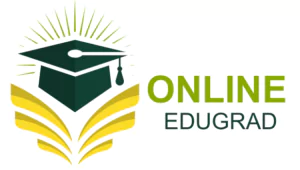In the ever-evolving world of education, where information flows generously and accessibility to understanding is just a click away, student-driven encyclopedias are becoming a vibrant tool in the understanding process.

These systems not just give pupils with a repository of information yet also motivate them to add, modify, and curate web content, cultivating a collective and interactive learning environment.
As academic paradigms change in the direction of even more participatory and comprehensive versions, the concept of student-driven encyclopedias personifies this makeover. These platforms empower pupils to come to be active individuals in expertise production, connecting the space between conventional book discovering and contemporary electronic sources.
The Idea of Student-Driven Encyclopedias
Student-driven encyclopedias are digital systems where students jointly collect, validate, and disseminate information on a wide variety of topics. Unlike typical encyclopedias, which are usually composed by experts, these platforms leverage the collective efforts of trainees to create a thorough body of expertise.

At their core, student-driven encyclopedias are developed to grow important thinking, research study skills, and electronic literacy amongst trainees. By taking part in the procedure of web content creation, pupils learn to browse and evaluate info critically, skills that are important in today’s information-rich culture.
In addition, these platforms function as an area for students to explore their interests and share their proficiency. This autonomous strategy to knowledge development ensures that a diverse range of viewpoints and voices are represented, improving the learning experience for all individuals.
- Trainees get hands-on experience in research and web content production.
- Urges collaboration and peer communication.
- Promotes a deeper understanding of subject.
- Fosters inclusivity and variety in expertise depiction.
Fundamentally, student-driven encyclopedias change students from easy receivers of details right into active contributors, instilling a sense of possession and duty in their instructional journey.
Advantages of Student-Driven Encyclopedias
One of the primary benefits of student-driven encyclopedias is the development of vital 21st-century skills. As students engage in the procedure of web content development, they hone their vital thinking, digital literacy, and interaction abilities, all of which are crucial in today’s interconnected world.
In addition, these systems urge a collective learning atmosphere, where students can work together to verify information, debate different viewpoints, and co-edit write-ups. This peer-to-peer communication not only improves discovering results yet additionally promotes a feeling of neighborhood and shared respect amongst students.
Moreover, student-driven encyclopedias supply a platform for showcasing trainee job. As trainees contribute to the encyclopedia, they construct a portfolio of their research study and writing, which can be important for more scholastic and professional quests.
Difficulties and Limitations
Regardless of the various advantages, student-driven encyclopedias also deal with certain challenges. Making certain the accuracy and reliability of info is vital, as these platforms rely upon payments from trainees who might not yet possess expert-level knowledge.
- Keeping content top quality and accuracy.
- Giving ample guidance and guidance.
- Making sure fair accessibility and inclusivity.
To minimize these challenges, numerous student-driven encyclopedias carry out a system of checks and equilibriums, where web content is assessed by teachers or professionals prior to magazine. This guarantees that the information presented is both accurate and trustworthy, maintaining the integrity of the platform.
The Future of Student-Driven Encyclopedias
As modern technology continues to advance and the landscape of education and learning progresses, the possibility for student-driven encyclopedias is huge. These systems have the capability to not just enhance typical educational sources but likewise redefine the method knowledge is acquired and shared.
In the future, we could see student-driven encyclopedias incorporating more advanced technologies such as expert system and machine learning to enhance student learning support page material curation and customization. Furthermore, they might increase beyond textual details to include multimedia content, supplying an extra immersive discovering experience.
Encouraging the Future Generation
Student-driven encyclopedias hold the guarantee of encouraging the future generation of learners. By positioning pupils at the helm of understanding production, these systems motivate long-lasting learning, interest, and intellectual self-reliance.
Finally, as instructional systems remain to innovate, student-driven encyclopedias stand as a testament to the power of partnership and the relevance of pupil company in the discovering procedure. By accepting these platforms, we open the doors to a much more inclusive, interesting, and vibrant educational experience for all.


